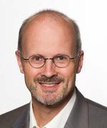On October 1st, 2016, Prof. Dr. Ulrike Wallrabe, Chair of Microactuators, will become the first female Director of the Department of Microsystems Engineering in its 20 years history. She takes over the office from his precursor Prof. Dr. Leonhard Reindl, Chair of Electrical Instrumentation.
On October 1st, 2016, Prof. Dr. Oliver Paul, Chair of Microsystems Materials, will become Dean of the Faculty of Engineering. He takes over the office from his precursor Prof. Dr. Georg Lausen, Department of Computer Science.
Prestigious Award by the European Union for new Deep Learning Project
Platform works with minute quantities of liquid to grow cells and study their development
Development of a high-dimensional brain machine interface, Tuesday, June 21st 2016, 4pm
The University of Freiburg is collaborating on a project that aims to use plant models to develop new materials
We had good reason to celebrate: the Chair of Microelectronics in Freiburg turned 15 and the Fritz Hüttinger Chair of Microelectronics was established 5 years ago.
Our latest review paper “Microfabricated, amperometric, enzyme-based biosensors for in vivo applications” has been published online in the journal Analytical and Bioanalytical Chemistry (Springer).
Researchers at IMTEK develop a rapid test for diagnosing malaria and other tropical diseases out of blood in a single run
Das Theater Freiburg hat in Zusammenarbeit mit Professoren, Wissenschaftlern und Unternehmern aus Freiburg und Basel das Projekt SUPERKÖRPER konzipiert, das am 15. April mit der Auftaktveranstaltung „Was ist unser Einsatz? Experten treffen auf Biokapital“ beginnt.
Aesculap AG agrees to participate in neuroloop GmbH and invest in a University of Freiburg spinoff
IIF team now in the final round of the Automatic Machine Learning Challenge (AutoML)
Prof. Dr. Stefan Hiermaier, chair of the new Gips-Schüle-Professorship of Sustainable Engineering Systems and Junior Professor Dr. Matthias Kuhl, chair of the Junior-Professorship of Modelling and Design of Integrated Interface Circuits.
The University of Freiburg founded the new Institute of Sustainable Systems Engineering (INATECH) in October 2015 with the aim to connect teaching and research in the field of sustainable systems and to complete it with an engineering research facility for sustainability research.
The start-up project “SpinDiag,” which enables early detection of antibiotics resistance, has taken first prize in the main category of the business plan competition StartInsLand 2015.
Freiburg team winner of the 5. International Competition on Software Verificaton
With the “Master 2016” program, the University of Freiburg receives five new degree programs and expands three others
André Gross, PhD student at the Lab for MEMS Applications, was awarded the „JALA 2016 Author‘s Choice Award“ for his popular article „Single-Cell – Printer Automated, On Demand, and Label Free“.
Jan Burchard (Department of Computer Science) and Sebastian Stöcklin (Department of Micorsystems Engingeering) were awarded the VDI Sponsorship Award 2015 by the President of the University of Freiburg Prof. Dr. Dr. h.c. Hans-Jochen Schiewer during the opening ceremony of the academic year 2015/16.
Dr. Sita Johanna Saunders (Department of Computer Science) and Dr. Matthias Koch (Department of Microsystems Engineering) were awarded the Wolfgang-Gentner-Award for Young Researchers 2015 by the President of the University of Freiburg Prof. Dr. Dr. h.c. Hans-Jochen Schiewer during the opening ceremony of the academic year 2015/16.
Prof. Gerald Urban has been elected in the DFG Review Board 407-06 „Biomedical Systems Technology“.
Thanks to the new tram line 4, you can now get to the Technische Fakultät campus every 10 minutes
Frohe Weihnachten Feliz Navidad Joyeux Noël Merry Christmas Buon Natale Schöni Wiehnacht Счастли́вого Рождества́ عِيدُ مِيلادٍ مَجِيد Boas Festas Весела Коледа 圣诞快乐 Sretan Bozic Veselé Vánoce Glædelig jul Zalig Kerstfeest Hyvää Joulua καλά Χριστούγεννα חג מולד שמח शुभ क्रिस्मस Kellemes karácsonyi ünnepeket Gleðileg jól Selamat Hari Natal クリスマスおめでとう。 크리스마스 잘 보내세요 priecīgus Ziemassvētkus Linksmų Kalėdų Среќен Божиќ God Jul Wesołych Świąt Bożego Narodzenia Feliz Natal Crăciun fericit Срећан Божић Veselé Vianoce vesel bôžič Sawadee Pee Mai Noeliniz Ve Yeni Yiliniz Kutlu Olsun З Різдвом Kellemes Karacsonyiunnepeket کرسمس مبارک chúc mừng Giáng sinh
200 students and staff have celebrated on Friday, November 20th, the first International Day at the Faculty of Engineering.
Repeated success in the Automatic Machine Learning Challenge (AutoML)
Prämierter Vortrag und Top-Platzierung beim Fotowettbewerb auf dem Workshop „Funktionelle Nanostrukturen“ der Baden-Württemberg Stiftung für Matthias Breitwieser, Lukas Zielke und Severin Vierrath
"f-cell award – award for innovative fuel cell technology" for researchers of the Lab for MEMS Applications and Hahn-Schickard - for the second time in succession
Freiburg researchers have developed a method for measuring soft, structured surfaces using optical forces
The 29th edition of the international EUROSENSORS Conference took place in the Freiburg Concert Hall from Sep. 6 to 9.






























